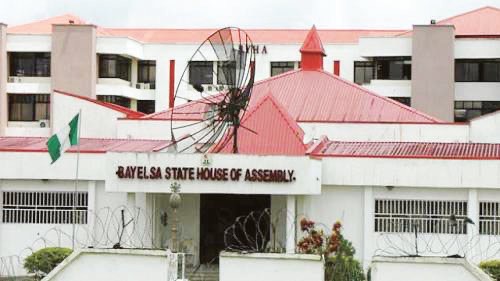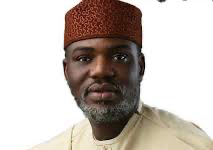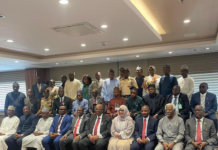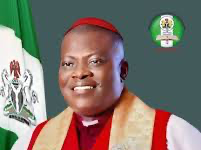Will Executive Order 10 Guarantee Autonomy For Legislators?
POLITICS DIGEST – After weeks of hide and seek game, the Parliamentary Staff Association of Nigeria finally made good their threat to shut down Houses of Assembly to enforce the provisions of the Executive Order 10 on financial autonomy. The Order signed by the President did not go down well with the governors, who have refused to implement it. TONY AKOWE reports
The strike by the Parliamentary Staff Association of Nigeria (PASAN), which has shut down the Houses of Assembly and threatening to extend to the National Assembly, has exposed the fact governors have consistently defiled the provisions of the constitution, which they swore to up hold.
As a separate arm of government, the Legislature is supposed to make its own budget, after getting its money on the first line charge. But, the State Assemblies have continued to be an appendage of governors, the same people they are supposed to oversight.
There appear to be light at the end of the tunnel for the lawmakers with the Executive Order signed by President Muhammadu Buhari.
On May 20, the President signed Executive Order 10 aimed at enforcing financial autonomy for the legislative and judicial arms of government at the state level. This was aimed at bringing these arms of government at par with their counterparts at the federal level and enforcing the provisions of the constitution and the practice of a presidential democracy. The Nigerian constitution states that the Executive, Legislature and Judiciary are separate arms of government working for the common good of the people. While the Federal Government has allowed financial autonomy for these arms of government, the same cannot be said of the states. It was apparently in realisation of the fact that the constitution has not be implemented by the governors that the President signed the order.
However, state governments are not happy with the decision of the President to compel them to grant financial autonomy to the Legislature. They have gone to the Supreme Court to challenge the powers of the President. Although the Legislature is a separate arm of government recognsied by the constitution, the governors have frustrated their independence, making them look like an appendage of the executive. At the federal level, the National Assembly has enjoyed its financial autonomy as resources available to them are drawn on first line charge, while they are allowed to prepare their own budget and carry out their own expenses. The lack of financial autonomy has rendered the House of Assembly incapable of carrying out their constitutional function of over sighting the executive and approving their budget as and when due. More often than not, Speakers of Houses of Assembly have been impeached for not adhering to the dictates of the governors, while those loyal to the governors are installed. In some states, annual budget have been passed by less than half of the members of the Assembly. In some states, annual budget have been passed in less than one week after it was presented to the assembly. Many have argued that the Houses of Assembly are just in place to carry out the wishes of the governor for fear of being starved of funds.
The Executive Order signed by the President states: “Without prejudice to any other applicable laws, legislations and conventions at the State tier of Government, which also provides for financial autonomy of State Legislature and State Judiciary, allocation of appropriated funds to the State Legislature and State Judiciary in the state appropriation laws in the annual budget of the State, shall be a charge upon the Consolidated Revenue Fund of the State, as a First Line Charge”.
It also states that “the Accountant-General of the Federation shall by this Order and such any other Orders, Regulations or Guidelines as may be issued by the Attorney-General of the Federation and Minister of Justice, authorise the deduction from source, in the course of Federation Accounts Allocation from the money allocated to any State of the Federation that fails to release allocation meant for the State Legislature and State Judiciary in line with the financial autonomy guaranteed by Section 121(3) of the Constitution of the Federal Republic of Nigeria 1999 (as Amended).
Read Also:
In determining the budget, the Order states that “Notwithstanding the provisions of any existing law, convention or regulation, other than the Constitution of the Federal Republic of Nigeria 1999 (as Amended), providing for appropriation or management of funds at the State tier of Government, “every State Government of the Federation shall set up a Committee from the commencement of this Executive Order comprising the Commissioner of Finance, Accountant-General of the State, representative of the State Budget Office, Chief Registrars of State High Court, Sharia Court of Appeal and Customary Court of Appeal, (where applicable), the Clerk to the State House of Assembly and the Secretary of the State Judicial Service Committee or Commission; where applicable, determine and ascertain from the Revenue profile of the State, a workable budget for each Arm of the State Government based on the request and needs of the Accounting Officers; and (c) the Committee shall be given and accorded legal recognition in the various relevant appropriation or Funds Management Laws of the States”.
The Executive Order, which was supposed to have taken effect from May 20, 2020 when it was signed into law, also made it mandatory for states to amend their Appropriation Law to encompass financial autonomy of State Legislature and State Judiciary.
The PASAN is not happy with the development and it has called out members on a nationwide strike, while threatening to shut down the National Assembly if nothing is done. They are accusing the governors of working against the actualisation. They are also not happy with Speakers of Houses of Assembly for being so lily livered that they cannot push their own autonomy as guaranteed by the constitution. They believed that Speakers have shown non charlatan attitude to the actualisation. In a communique by the association, which was also a prelude to the nationwide strike, the union said: “It is unfortunate that after the issuance of Order 10, the governors are still relenting in implementing it. We believe that financial autonomy is what will give the legislators independent and strengthen the legislature and democracy. But, it is unfortunate that the state governors are kicking an issue, which is contained in the constitution of the federal republic of Nigeria.
“This same constitution brought them to power and so, we have been patiently waiting for the implementation of the autonomy. But, up until this very moment, nothing has been done about it. We blames the Speakers Forum who have shown nonchalant attitude towards the realisation of the financial autonomy. On our part as Parliamentary Staff Association of Nigeria, we have looked at it vividly and decided to come up with our resolution. We will seek for independence by ourselves if Speakers of the State Houses of Assembly cannot do this. It is so unfortunate that we have to go this far. But I think this is just the best way to tackle this issues.
“We will fight for our independence, and if the needful is not done, we will take a step further. A step further we will be taking to show our grievances will be to shut down the State of Houses of Assemblies. We will also hold the Speakers responsible by showing nonchalant attitude towards the financial autonomy.”
Inspite of the suit at the Supreme Court seeking to invalidate the order, the governors appear to have back down on the issue. Sokoto State Governor Aminu Tambuwal, a former Speaker of the House of Representatives, was quoted as saying that the governors have given their backing to financial autonomy for state legislators and judiciary, stressing however, that modalities for its implementations was being worked out. Incidentally, Plateau State Governor Simon Lalong, who is also a former Speaker of the state Assembly, accompanied Tambuwal to visit the Chief of Staff to the President on the issue. He said: “We are here to meet the Chief of Staff on the instruction of Mr. President and you can see that the leadership of the Speakers Conference of the States of the Federation is here ably led by the Chairman. It’s all about Order 10 which has to do with the independence, financial autonomy of the legislature and the judiciary at the State level. So, it’s a continuous meeting and we are going to meet next week, when we hope to finalise on the framework and modalities of implementing the autonomy of the state legislature and the judicial.” It is however not clear whether the new song of the governors is as a result of the crippling nature of the strike embarked upon by the state Assembly workers or a genuine intention to do what they have refused to do over the years.
Many Nigerians believe that allowing the legislature to enjoy financial autonomy will pave way for the practice of real separation of power at the state level. However, the leadership of the state legislature has remained docile, failing to use the weapon at their disposal to compel the governors to give them their money from the first line charge of the state as practiced at the federal level. But, with the willingness expressed by the governors, it is left to be seen whether will live by their promise.

















